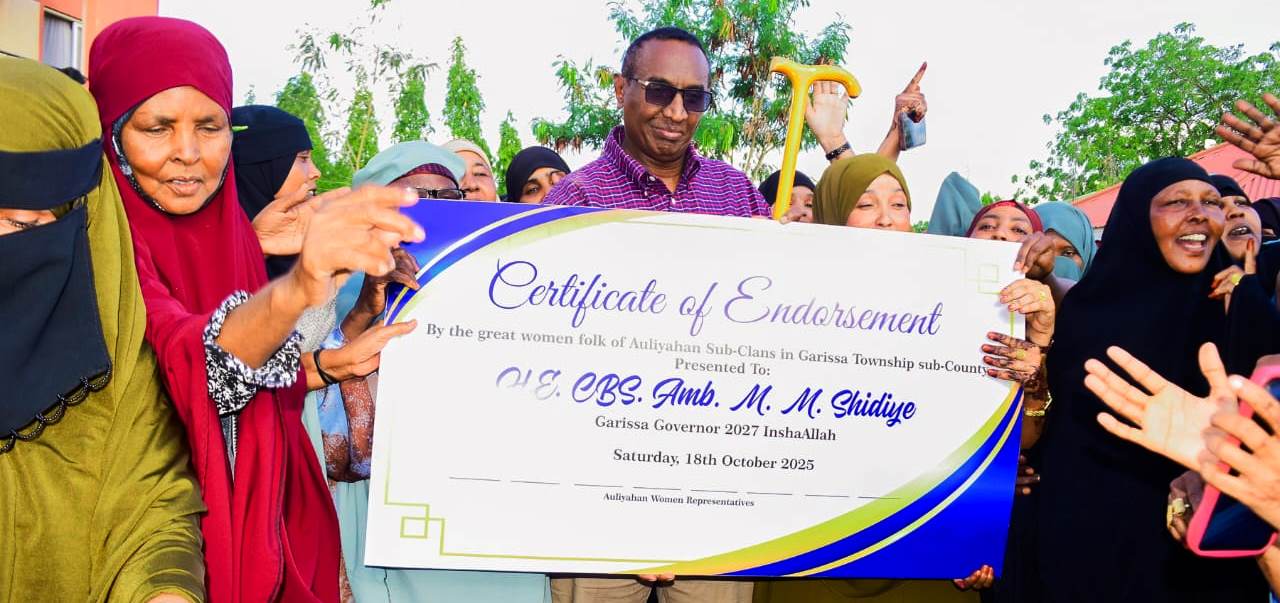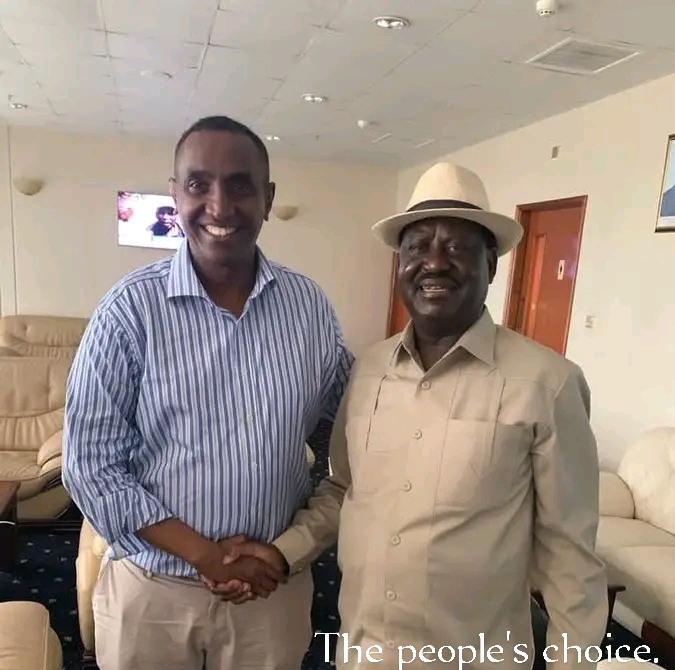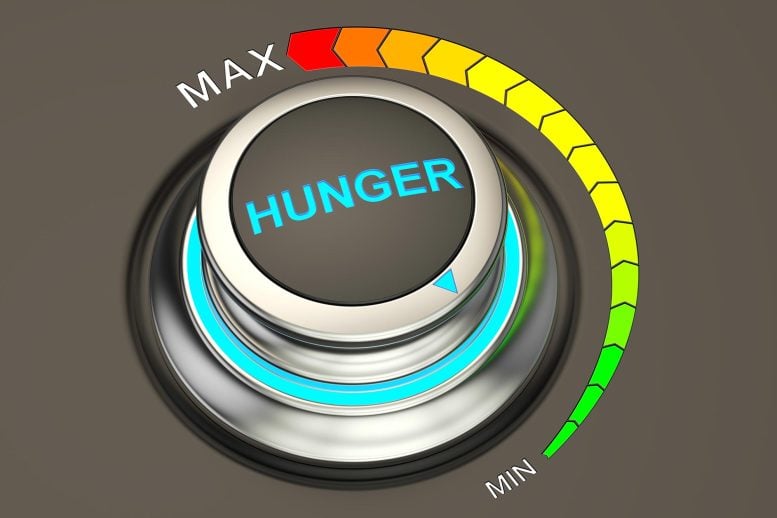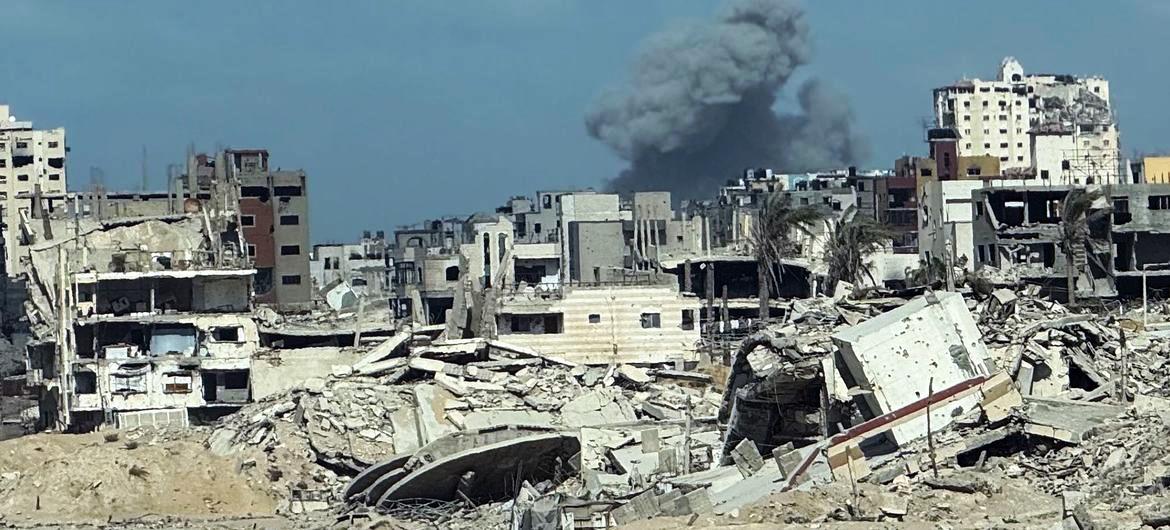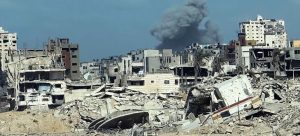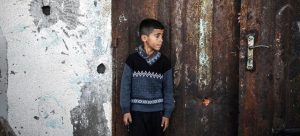A young boy stands by a wall showing the signs of a missile attack. PHOTO/ Abed Zaqout / UNICEF
By SPECIAL CORRESPONDENT
In a blistering final address before stepping down as the United Nations High Commissioner for Refugees, Filippo Grandi issued a stark and urgent warning: the world is sleepwalking into an era where the laws of war are no longer just flouted—they are being systematically and deliberately dismantled.
Grandi, addressing the UNHCR’s executive meeting in Geneva, did not mince his words. He called out, in no uncertain terms, the shameless atrocities being committed today in Gaza and the occupied West Bank, in Ukraine, and in the blood-soaked conflicts of Sudan and Myanmar.
These horrors, he said, are not accidents of war. They are deliberate, calculated acts of brutality; the “intentional abandonment of the norms” that underpin international law, carried out with complete impunity by both states and armed groups.
“People killed while waiting in line to receive food. Civilians massacred in camps where they fled for safety. Hospitals and schools destroyed. A record number of aid workers killed,” Grandi declared.
These are not distant tragedies. They are direct assaults on human dignity, and they are happening under the world’s watchful gaze. In Gaza, entire families are being buried beneath rubble as Israeli bombardments obliterate refugee camps and hospitals, while settlers in the occupied West Bank unleash a campaign of terror against Palestinian communities.
In Ukraine, Russian forces continue their relentless and illegal invasion, leaving a trail of war crimes in their wake. In Sudan and Myanmar, civilians are caught in the crossfire of state collapse and ethnic cleansing, abandoned by a world that prefers diplomacy at a distance to decisive intervention.
Let us be clear: these are not isolated events. They are symptoms of a global moral failure; a failure to uphold the very principles enshrined in the Geneva Conventions, in the UN Charter, and in the 1951 Refugee Convention itself.
The atrocities of our time are not inevitable; they are enabled by political cowardice, diplomatic apathy, and a global community paralysed by self-interest.
Grandi’s warning cuts to the core of this crisis. The pretence that the international community is powerless is a lie; a dangerous, corrosive lie that serves only those who benefit from chaos and death.
“Let there be no mistake: the daily repetition of atrocities is intended to numb our conscience. To make us feel powerless,” Grandi insisted.
This, then, is the strategy of the war criminals and aggressors: not just to wage violence, but to wear down the moral resistance of the world. To make genocide ordinary. To normalise collective punishment, ethnic cleansing, and occupation. To desensitise us until silence becomes complicity.
And yet, Grandi insisted, we are not powerless. The tools exist; legal, diplomatic, humanitarian, to challenge these crimes. But what is absent is the political will. Instead of mobilising to stop war crimes, many governments are fixated on closing their borders, demonising refugees, and dismantling the very frameworks designed to protect the displaced and persecuted.
Grandi rightly condemned this wave of anti-refugee sentiment sweeping Europe and parts of the United States, where deportation practices increasingly flout international law. The irony is grotesque: while bombs fall on homes, schools, and hospitals, wealthy nations debate how to wash their hands of the very people fleeing those bombs.
Meanwhile, funding for humanitarian aid is shrinking, even as the number of people displaced by conflict has soared to a staggering 122 million; nearly double what it was a decade ago. This is not just negligence; it is an abandonment of humanity itself.
Grandi’s plea was not just a farewell—it was a call to action. A reminder that international law is only as strong as the courage of those who defend it. That neutrality in the face of war crimes is not impartiality; it is complicity.
The relentless assault on Gaza must be halted. Ceasefire must not be a bargaining chip; it is a moral imperative. The siege, the bombings, the targeting of refugee camps—these are not acts of self-defence. They are crimes.
Russia’s aggression in Ukraine must be met not with fatigue but with renewed resolve. The victims of occupation, torture, and mass displacement deserve more than half-hearted condemnations.
The forgotten conflicts in Sudan and Myanmar must return to the centre of global attention. Every life lost to these senseless wars is a testament to the failure of global leadership.
And the 1951 Refugee Convention, now under threat, must be upheld—not reformed into irrelevance. It is the last line of defence for millions fleeing persecution, and dismantling it would be a betrayal of everything the post-war world claimed to stand for.
History will remember this moment. It will remember who stood by while children starved and cities burned—and who had the courage to act.
Filippo Grandi has sounded the alarm. The world must now choose: will it be complicit in the destruction of the international order, or will it finally rise to defend it?
This is not a time for silence. It is a time for action.
